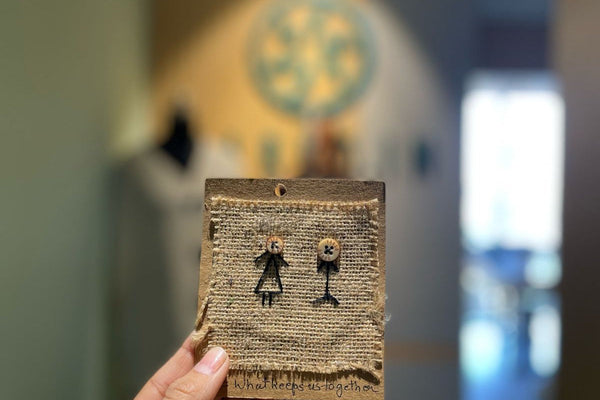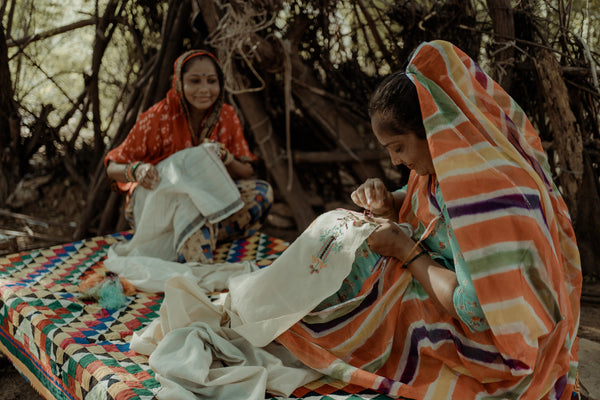The Timeless Elegance of Corozo Nut Buttons

At Varso, we believe that true craftsmanship is found in the finest details. From the careful selection of fabrics to the finishing touches on every garment, each element plays a role in creating something meaningful. One such detail is the Corozo nut button—a sustainable, durable, and beautifully unique choice that reflects our commitment to mindful fashion.
The History of Buttons: From Ornament to Essential
Buttons have a rich history dating back to the Bronze Age, where they were initially used as decorative ornaments rather than functional fasteners. It wasn’t until the mid-13th century that reinforced buttonholes were invented, making buttons a practical feature in clothing.
By 1918, an extensive US government survey listed buttons made from a wide range of materials, including vegetable ivory, metal, glass, silk, linen, pearl, rubber, wood, buckhorn, bone, leather, porcelain, tin, zinc, and stone. Among these, vegetable ivory also known as Corozo was a preferred material, making up 20% of the US button market by the 1920s, particularly in shirts and suits.
However, as technology advanced, plastic and composite materials became dominant in button manufacturing. But with the increasing demand for sustainability in fashion, natural materials like Corozo are making a comeback—offering not only beauty but also eco-friendly benefits.
What is Corozo?
Also known as “vegetable ivory,” Corozo is derived from the Tagua palm tree, primarily found in the rainforests of South America. The seeds of this tree harden over time, developing an ivory-like texture that makes them ideal for carving into buttons. Their fine grain gives them a naturally elegant pattern, making each button unique.
Beyond aesthetics, Corozo is a sustainable and ethical alternative to synthetic materials, as its harvesting process does not harm the tree, ensuring a continuous and eco-friendly supply.
The Process of Making Corozo Buttons
Crafting a Corozo nut button is a meticulous process that blends nature with artisanal craftsmanship:
1. Harvesting the Tagua Nut: The Tagua palm tree naturally sheds its ripe nuts, which are then collected without damaging the plant. This makes Corozo a truly renewable resource.
2. Drying & Hardening: Once harvested, the nuts are sun-dried for up to two months, allowing them to harden into a dense, ivory-like material.
3. Cutting & Shaping: The hardened nuts are then sliced into thin disks and carved into various button shapes.
4. Engraving & Carving: Due to Corozo’s fine grain, intricate patterns and textures can be engraved, adding a refined touch to each button.
5. Dyeing & Polishing: Corozo is highly porous, allowing it to absorb dyes deeply, resulting in rich and long-lasting colors. After dyeing, the buttons are polished for a smooth and lustrous finish.
Why We Choose Corozo at Varso
At Varso, every detail matters. Our decision to use Corozo nut buttons is based on their many benefits:
✔️ Sustainability – Corozo is biodegradable and sourced responsibly, making it an eco-friendly alternative to plastic.
✔️ Durability – These buttons are naturally hard, resistant to scratches, and long-lasting.
✔️ Unique Aesthetic – The natural grain and deep color absorption make each button beautifully distinct.
✔️ Artisan Craftsmanship – Every button is carefully shaped and finished, maintaining the heritage of handcrafted details in fashion.
Bringing Thoughtful Details to Life
Incorporating Corozo nut buttons into our garments is more than just a design choice—it’s a commitment to sustainability, heritage, and quality. By choosing Varso, you’re not just embracing handcrafted fashion but also supporting a movement toward responsible and conscious clothing.
Experience the elegance of sustainable craftsmanship.
📍 Explore our collection at www.varso.in
✨ Every button, every stitch, every detail—crafted with purpose. ✨


